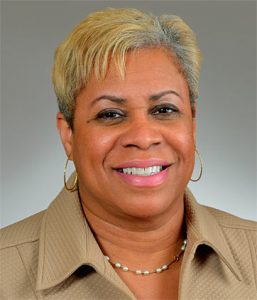by John E. Britton | Jan 23, 2019 | General, Labor and Employment, School Management
On December 14, 2018, the Fifth District Court of Appeals (Morrow County) upheld Highland Local School District Board of Education’s decision to non-renew two first year bus drivers.
The Union filed a grievance in response to the Board’s notice of intent not to renew the limited contracts of two bus drivers. The grievance claimed there was no showing of “just cause” and proceeded to arbitration based upon the language of the collective bargaining agreement – only a “just cause” provision for discipline and discharge and silent on the issue of the non-renewal of limited non-teaching contracts. The agreement also included a general statement that the contract “supersedes” all applicable state law.
While arbitration hearing dates were being scheduled, the union’s attorneys filed a declaratory judgment action in court that was decided in favor of the Board on the basis that because the contract did not address the issue of non-renewal, state law applies.
The Court of Appeals of Ohio’s Fifth District agreed with the trial court, rejecting the union’s claim that a general statement in the contract that the collective bargaining agreement “supersedes applicable state law” somehow preempted the application of Ohio’s non-renewal statutes. The Court stated that such overrides can only occur “when a provision specifically addresses a matter and evinces a clear intent to override the statutory law relating to that matter.”
As such, since the contract made no specification about the issuance, sequence, renewal, or non-renewal of limited non-teaching contracts, there was no discernible conflict between the labor agreement and the statutes, therefore, “both R.C. 3319.081 and 3319.083 apply in the case.”
What This Decision Means for Your District
This is a strong decision for the proposition that statutory rights can only be superseded by express language in a collective bargaining agreement. This works both ways and districts should take great care in drafting contract proposals that conflict with existing state laws, particularly as they relate to employee rights.
Along those same lines, it is very important that district administration carefully review non-teaching labor agreements relative to the issue of non-renewal given the recent amendments that now extend limited contracts from three years (1, 2, continuing) to seven years (1, 2, 2, 2, continuing). If you have addressed non-renewal in your non-teacher agreement, you will need to verify that you will also be able to take advantage of these additional years before continuing contract status is granted. You should also anticipate proposals from non-teacher unions attempting to restrict the extension of limited contract status.
United Elec. Radio & Machine Workers of Am. v. Highland Local School Dist. Bd. of Edn. 2018 Ohio 5307 (Fifth District Court of Appeals, Morrow County, December 14, 2018).
by Bronston McCord | Dec 11, 2018 | General
We are very pleased to announce that the highly reputed organization Super Lawyers has selected Ennis Britton shareholder Gary Stedronsky as a Super Lawyer and shareholders Megan Bair, Pamela Leist, and Erin Wessendorf-Wortman as Super Lawyers Rising Stars for 2019!

Gary Stedronsky is a shareholder who has been with Ennis Britton since 2003. He started as a law clerk while attending law school. As a member of Ennis Britton’s Construction and Real Estate Team and School Finance Team, he provides counsel to school districts throughout Ohio on matters related to property issues, public finance matters, tax incentives, and more. He is a published author and frequent presenter on many education-related topics. Gary received the prestigious Super Lawyers Rising Star award five years in a row and now has received the Super Lawyers award!

Megan Bair is a shareholder who advises school districts on a variety of education law matters. As a member of Ennis Britton’s Special Education Team and School Finance Team, Megan represents boards of education on collective bargaining, student discipline, board policy, and much more. Megan has offices in Cleveland and Mahoning Valley. This is Megan’s third year in a row to receive the Super Lawyers Rising Star award!

Pamela Leist is an Ennis Britton shareholder who assists clients with a variety of education law issues. As a member of the firm’s Special Education and Workers’ Compensation Practice Teams, she has represented boards of education before state and federal courts and multiple state and federal administrative agencies. Ms. Leist frequently presents across the state of Ohio on issues related to school law and operations. This is Pam’s second year in a row to receive the Super Lawyers Rising Star award!

Erin Wessendorf-Wortman is a shareholder with the firm. As a member of the firm’s Special Education and Workers’ Compensation Practice Teams, Erin represents school districts across Ohio on a variety of matters including labor and employment issues, civil rights, special education, public records, and more. She is a published author and frequent presenter on many education-related topics. This is Erin’s third year in a row to receive the Super Lawyers Rising Star award!
Super Lawyers is a national rating service that publishes a list of attorneys from more than 70 practice areas who have attained a high degree of peer recognition and professional achievement.
To qualify as a Rising Star, an attorney must score in the top 93rd percentile during a multiphase selection process that includes peer nominations and evaluations combined with independent research. A Super Lawyers rating is considered a very prestigious designation in the legal field. Only those in the top 5 percent of the total lawyers in the state are selected to Super Lawyers, and only 2.5 percent of newer lawyers are selected to Rising Stars. We commend Gary for his selection to Super Lawyers and Megan, Pam, and Erin for their selection to Rising Stars!
Visit the Super Lawyers website to learn more.
by Pamela Leist | Nov 30, 2018 | General
Ennis Britton first reported about this case in the May 2018 issue of our newsletter, School Law Review, as it has implications for school districts and athletic organizations. Since then, this case has continued in court, and the Ohio Supreme Court has now weighed in as well.
Steve Schmitz was an NCAA athlete who, during the course of his football career in the 1970s, exhibited several symptoms related to repeated concussions. He was diagnosed with CTE in 2012 and alleged that this was the first time he knew he had suffered a bodily injury. He filed a lawsuit in 2014. Since his death in 2015, his widow has continued the lawsuit.
The Cuyahoga County Court of Common Pleas dismissed the case based on the statute of limitations as more than two years had passed since the bodily injury occurred.
A cause of action for a bodily injury generally accrues from the time the wrongful act that caused the injury was committed. Most often, the bodily injury and the wrongful act occur at the same time; in these cases, the statute of limitations clearly begins tolling at the time of injury. However, in some cases a person is not aware of a bodily injury at the time of the wrongful act. In these cases, it is not as clear when the two-year statute of limitations should begin running.
On October 31, 2018, the Ohio Supreme Court unanimously decided that the lower court had dismissed the case prematurely and that the case should continue. The Supreme Court developed a “discovery rule” for cases of latent bodily injury, in which the injury develops after the incident that caused it. The opinion stated, “[e]ssentially, the statute of limitations begins to run when the plaintiff knows or, in the exercise of reasonable diligence, should know that he has suffered a cognizable injury.”
A similar case previously decided by the Ohio Supreme Court held that the statute of limitations for a latent injury claim began tolling on the “date a competent medical authority” informed the man of his specific bodily injury. Liddell v. SCA Servs. of Ohio, 70 Ohio St. 3d 6 (Ohio 1994).
– Schmitz v. Natl. Collegiate Athletic Assn., Slip Opinion No. 2018-Ohio-4391.
by Gary Stedronsky | May 25, 2018 | Board Policy & Representation, General
The Ohio attorney general recently published an opinion that addressed several questions regarding property valuation settlements when property owners and boards of education contest an auditor’s value (O.A.G. No. 2018-011).
A party such as a board of education or a property owner who contests an auditor’s property valuation will begin by filing a complaint with the board of revision. A party who disagrees with the requested valuation may file a counter-complaint. While the complaint is pending before the board of revision, the complaining parties may enter into a settlement agreement, either dismissing the complaint or stipulating to an agreed property valuation, both of which options may be accompanied with a payment from the property owner to the board of education.
The attorney general’s opinion answered four questions raised by the Stark County prosecuting attorney, all of which used the same hypothetical property valuations:
- The county auditor values a property at $400,000.
- The local board of education files a complaint to increase the property valuation to $550,000.
- The property owner files a counter-complaint to reduce the valuation to $350,000.
Scenario 1
In the scenario in the first two questions, the board of education dismisses the complaint in exchange for a one-time payment of $5,000. In their simplest form, the questions arising from this scenario are as follows:
- Is this scenario permissible?
- If so, may a board of revision require disclosure or approval of the settlement agreement as a condition for the board of education to dismiss the complaint?
The short answer to question 1 is yes, this is permissible. The attorney general explained that a board of education may voluntarily dismiss a pending complaint. Furthermore, a board of education has the authority to enter into a settlement agreement. This includes the terms of the settlement – in this scenario, receiving a payment in exchange for dismissing the complaint.
In answer to question 2, the attorney general noted that a board of revision has no authority to require a party to disclose the settlement agreement, nor to require the board of revision’s approval of the settlement agreement, as a condition for the board of education to dismiss the complaint.
Scenario 2
In the scenario in the final two questions, the board of education and the property owner agree to a property value of $450,000, which is halfway between the differing valuations of the board of education ($550,000) and the property owner ($350,000). Provided the board of revision agrees to the stipulated value, the property owner will then pay the board of education a one-time payment of $2,500. The questions arising from this scenario are as follows:
- Is this scenario permissible?
- If so, prior to the board of revision’s approving the stipulated value, may a board of revision require disclosure of the payment arrangement and consider that arrangement when determining whether to approve or reject the stipulated value?
Again, the short answer to question 3 is yes. A board of education may agree to accept payment from a property owner in exchange for stipulating to a certain property value. Stipulations are common tools that litigating parties employ. However, only the county auditor and board of revision have the authority to determine a property’s valuation. Therefore, although a board of education and a property owner may stipulate to a particular valuation, the board of revision must approve the valuation.
Question 4 is whether the board of revision may require disclosure of the payment arrangement and consider that arrangement when deciding whether to approve the stipulated property value. To determine the property value, the auditor considers not only the land and the improvements to the land, but also the present use of the land and the best probable use of the land. These factors include such things as supply and demand, financing, time and cost of development, and many others – all of which are physical and geographic characteristics. These considerations do not include any agreed payment amount between a board of education and a property owner. Therefore, a board of revision may neither require the disclosure of any such payment nor consider such payment in making a decision on the stipulated property valuation.
* * * * *
Clients of Ennis Britton receive our School Law Review newsletter, in which we address what this OAG opinion means for school districts in Ohio.
by Bronston McCord | Jan 10, 2018 | General
Ennis Britton is very pleased to announce that Ryan M. LaFlamme, Pamela A. Leist, Giselle S. Spencer, Erin Wessendorf-Wortman, and Megan Bair Zidian have been promoted to the position of shareholder in the firm.
“We are proud to have such a fine cohort of attorneys who have a genuine passion for education law,” said C. Bronston McCord, managing shareholder of Ennis Britton. “Their selection to this position is a testament not only to their exceptional abilities as attorneys but also to the continued success of the firm and its commitment to excellence.”
 Ryan M. LaFlamme served as a law clerk for the firm during law school before joining the firm as an attorney. He is a member of the firm’s Construction and Real Estate, School Finance, and Workers’ Compensation Practice Teams and practices in many areas of the law concerning school districts including employment issues, construction, student discipline, workers’ compensation, labor arbitration, staff discipline, and policy review and drafting, in addition to general school law and local government practice. Ryan also serves as assistant prosecutor for two municipalities in Ohio. He has represented school district boards of education in both state and federal court. He has also defended school boards before the Equal Employment Opportunity Commission, the state and federal Offices for Civil Rights, the Ohio Bureau of Workers’ Compensation Review Commission, and the Unemployment Review Commission.
Ryan M. LaFlamme served as a law clerk for the firm during law school before joining the firm as an attorney. He is a member of the firm’s Construction and Real Estate, School Finance, and Workers’ Compensation Practice Teams and practices in many areas of the law concerning school districts including employment issues, construction, student discipline, workers’ compensation, labor arbitration, staff discipline, and policy review and drafting, in addition to general school law and local government practice. Ryan also serves as assistant prosecutor for two municipalities in Ohio. He has represented school district boards of education in both state and federal court. He has also defended school boards before the Equal Employment Opportunity Commission, the state and federal Offices for Civil Rights, the Ohio Bureau of Workers’ Compensation Review Commission, and the Unemployment Review Commission.
Ryan frequently speaks throughout Ohio on education-related topics. He volunteers as a high school mock trial coach annually. He also served as a trustee for the Citizens for the North College Hill Community Center and has served as a treasurer on several levy campaigns. Ryan earned his J.D. from Northern Kentucky University in 2008 and is licensed to practice law in Ohio and in the U.S. Virgin Islands.
 Pamela A. Leist served as a law clerk for the firm before joining the firm as an attorney. She is a member of the Special Education and Workers’ Compensation Practice Teams and assists clients with a variety of education law issues including special education, student discipline, labor and employment law, negotiations, board policy review and development, and legislative review. She has represented boards of education before state and federal courts, the U.S. Department of Education Office for Civil Rights, the Internal Revenue Service, the U.S. Equal Employment Opportunity Commission, the Ohio Civil Rights Commission, the State Personnel Board of Review, the State Employment Relations Board, the Ohio Unemployment Review Commission, and the Ohio Department of Education. She also serves as the firm’s marketing coordinator.
Pamela A. Leist served as a law clerk for the firm before joining the firm as an attorney. She is a member of the Special Education and Workers’ Compensation Practice Teams and assists clients with a variety of education law issues including special education, student discipline, labor and employment law, negotiations, board policy review and development, and legislative review. She has represented boards of education before state and federal courts, the U.S. Department of Education Office for Civil Rights, the Internal Revenue Service, the U.S. Equal Employment Opportunity Commission, the Ohio Civil Rights Commission, the State Personnel Board of Review, the State Employment Relations Board, the Ohio Unemployment Review Commission, and the Ohio Department of Education. She also serves as the firm’s marketing coordinator.
Pam frequently presents across the state of Ohio on issues related to school law and operations. She has served the local community in many capacities including director of marketing for the Cincinnati Memorial Hall Centennial Event Planning Committee, member of the board of trustees for the North College Hill Community Seniors, Executive Committee member for the North College Hill Business Association, and planning chair for the Ohio State Bar Association’s School Law Workshop. She is also a member of the Ohio State Bar Association’s Leadership Academy Class of 2016. She is currently a legal advisor for the Cincinnati Bar Association High School Mock Trial Competition. Pam earned her J.D. from the University of Cincinnati in 2007.
 Giselle S. Spencer is a member of the firm’s Special Education, Workers’ Compensation, and Finance Practice Teams. She counsels school district boards of education and administration on many aspects of education law including employment matters, workers’ compensation, property valuation, student discipline, public records, special education, discrimination complaints, and board governance. She has represented boards of education before state and federal courts, county Boards of Revision, the U.S. Department of Education Office for Civil Rights, the U.S. Equal Employment Opportunity Commission, the Industrial Commission, the Ohio Civil Rights Commission, the State Personnel Board of Review, the State Employment Relations Board, the Ohio Unemployment Review Commission, and the Ohio Department of Education. Prior to entering private practice, Giselle served as director of legal services for Dayton Public Schools and chief legal counsel for Columbus Public Schools. She has also served as chief examiner for the Dayton Civil Service Commission.
Giselle S. Spencer is a member of the firm’s Special Education, Workers’ Compensation, and Finance Practice Teams. She counsels school district boards of education and administration on many aspects of education law including employment matters, workers’ compensation, property valuation, student discipline, public records, special education, discrimination complaints, and board governance. She has represented boards of education before state and federal courts, county Boards of Revision, the U.S. Department of Education Office for Civil Rights, the U.S. Equal Employment Opportunity Commission, the Industrial Commission, the Ohio Civil Rights Commission, the State Personnel Board of Review, the State Employment Relations Board, the Ohio Unemployment Review Commission, and the Ohio Department of Education. Prior to entering private practice, Giselle served as director of legal services for Dayton Public Schools and chief legal counsel for Columbus Public Schools. She has also served as chief examiner for the Dayton Civil Service Commission.
Giselle frequently presents on various education law topics at the state and national levels and is a featured presenter for several school employee associations throughout Ohio. Giselle is a 2011 recipient of President Barack Obama’s Volunteer Service Award and has an extensive history of volunteer service, including as a board member for the Habitat for Humanity in Dayton and in Greater Cleveland and as past president of the Thurgood Marshall Law Society. She is a former adjunct professor at Capital Law School and current member of the National School Boards Association Council of School Attorneys, the Norman S. Minor Bar Association, and other bar associations. Giselle earned her J.D. from Ohio Northern University in 1986.
 Erin Wessendorf-Wortman advises clients on a variety of education law matters including labor and employment issues, student discipline and rights, special education, relationships with school resource officers, serving transgender students, employee misconduct and investigations, and general school law practice. She is also a member of the firm’s Special Education and Workers’ Compensation Practice Teams. Erin has represented school boards before a variety of federal and state administrative agencies including the Ohio Civil Rights Commission, State Employment Relations Board, Internal Revenue Service, U.S. Equal Employment Opportunity Commission, and U.S. Department of Education Office for Civil Rights.
Erin Wessendorf-Wortman advises clients on a variety of education law matters including labor and employment issues, student discipline and rights, special education, relationships with school resource officers, serving transgender students, employee misconduct and investigations, and general school law practice. She is also a member of the firm’s Special Education and Workers’ Compensation Practice Teams. Erin has represented school boards before a variety of federal and state administrative agencies including the Ohio Civil Rights Commission, State Employment Relations Board, Internal Revenue Service, U.S. Equal Employment Opportunity Commission, and U.S. Department of Education Office for Civil Rights.
Erin is a frequent presenter at professional conferences and at administrator and staff in-service trainings. She is a member of the Cincinnati Bar Association and the Ohio State Bar Association. Erin earned her J.D. from The Ohio State University in 2009.
 Megan Bair Zidian advises public school districts and boards of education on a variety of education law matters including collective bargaining, labor and employment issues, student discipline and privacy issues, special education and board policy, and administrative guideline development. She is a member of the firm’s Special Education and School Finance Practice Teams. She has defended boards of education in arbitration, special education due process hearings, and state and federal administrative agencies including the State Employment Relations Board, Ohio Civil Rights Commission, U.S. Equal Employment Opportunity Commission, and Office for Civil Rights. Megan also has extensive experience in the school transformation process and assists academically distressed districts in navigating that progression.
Megan Bair Zidian advises public school districts and boards of education on a variety of education law matters including collective bargaining, labor and employment issues, student discipline and privacy issues, special education and board policy, and administrative guideline development. She is a member of the firm’s Special Education and School Finance Practice Teams. She has defended boards of education in arbitration, special education due process hearings, and state and federal administrative agencies including the State Employment Relations Board, Ohio Civil Rights Commission, U.S. Equal Employment Opportunity Commission, and Office for Civil Rights. Megan also has extensive experience in the school transformation process and assists academically distressed districts in navigating that progression.
Megan is a frequent speaker at school conferences and regularly provides in-service training to school administrators and staff members. She serves on the Council of School Board Attorneys for the Ohio School Boards Association and is a member of the Council of School Attorneys of the National School Boards Association. Megan earned her J.D. from the University of Akron in 2011.
Please join us in congratulating each of them on their new role at Ennis Britton!
by Bronston McCord | Dec 6, 2017 | General
We are very pleased to announce that four Ennis Britton attorneys have been selected as 2018 Ohio Rising Stars! No more than 2.5 percent of attorneys in Ohio receive this award, which is given for demonstrating excellence in the practice of law. Congratulations to these Ennis Britton attorneys!
Super Lawyers is a national rating service that publishes a list of attorneys from more than 70 practice areas who have attained a high degree of peer recognition and professional achievement.
To qualify as a Rising Star, an attorney must score in the top 93rd percentile during a multiphase selection process that includes peer review and independent evaluations. A Super Lawyers rating is considered a very prestigious designation in the legal field, and we commend Pamela, Gary, Erin, and Megan for their continued achievement!

Pamela Leist is an attorney who has been with Ennis Britton since 2005, when she began serving as a law clerk while attending law school. As a member of Ennis Britton’s Special Education Team and Workers’ Compensation Team, she represents school districts across Ohio on a number of issues including special education, student discipline, labor and employment matters, and more. She also serves as the firm’s marketing coordinator. Pam is a frequent presenter on many education-related topics.

Gary Stedronsky is a shareholder who has been with Ennis Britton since 2003. He started as a law clerk while attending law school. As a member of Ennis Britton’s Construction and Real Estate Team and School Finance Team, he provides counsel to school districts throughout Ohio on matters related to property issues, public finance, tax incentives, and more. He is a published author and frequent presenter on many education-related topics. This is Gary’s fifth year in a row to receive this prestigious award.

Erin Wessendorf-Wortman is an Ennis Britton attorney. As a member of Ennis Britton’s Workers’ Compensation Team and Special Education Team, Erin represents school districts across Ohio on a variety of matters including labor and employment issues, civil rights, special education, public records, and more. She is a published author and frequent presenter on many education-related topics. This is Erin’s second year in a row as a Rising Star.

Megan Bair Zidian is an Ennis Britton attorney who advises school districts on a variety of education law matters. As a member of Ennis Britton’s Special Education Team and School Finance Team, Megan represents boards of education on collective bargaining, student discipline, board policy, and much more. She is a frequent speaker at school conferences and in-service trainings for staff and administrators. This is Megan’s second year in a row to receive the Rising Star award.
Visit the Super Lawyers website to learn more.







